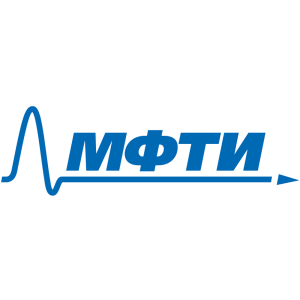Thermometry at the nanoscale
Patrícia P Lima
1
,
Patricia P. Lima
1
,
Nuno Silva
1
,
A. Millan
2
,
V.S. Amaral
1
,
Fernando Palacio
2
,
Publication type: Journal Article
Publication date: 2012-05-02
scimago Q1
wos Q1
SJR: 1.245
CiteScore: 9.9
Impact factor: 5.1
ISSN: 20403364, 20403372
PubMed ID:
22763389
General Materials Science
Abstract
Non-invasive precise thermometers working at the nanoscale with high spatial resolution, where the conventional methods are ineffective, have emerged over the last couple of years as a very active field of research. This has been strongly stimulated by the numerous challenging requests arising from nanotechnology and biomedicine. This critical review offers a general overview of recent examples of luminescent and non-luminescent thermometers working at nanometric scale. Luminescent thermometers encompass organic dyes, QDs and Ln(3+)ions as thermal probes, as well as more complex thermometric systems formed by polymer and organic-inorganic hybrid matrices encapsulating these emitting centres. Non-luminescent thermometers comprise of scanning thermal microscopy, nanolithography thermometry, carbon nanotube thermometry and biomaterials thermometry. Emphasis has been put on ratiometric examples reporting spatial resolution lower than 1 micron, as, for instance, intracellular thermometers based on organic dyes, thermoresponsive polymers, mesoporous silica NPs, QDs, and Ln(3+)-based up-converting NPs and β-diketonate complexes. Finally, we discuss the challenges and opportunities in the development for highly sensitive ratiometric thermometers operating at the physiological temperature range with submicron spatial resolution.
Found
Nothing found, try to update filter.
Found
Nothing found, try to update filter.
Top-30
Journals
|
10
20
30
40
50
60
70
80
90
|
|
|
Journal of Luminescence
85 publications, 5.96%
|
|
|
Journal of Materials Chemistry C
70 publications, 4.91%
|
|
|
Journal of Alloys and Compounds
43 publications, 3.01%
|
|
|
Nanoscale
39 publications, 2.73%
|
|
|
ACS applied materials & interfaces
35 publications, 2.45%
|
|
|
Advanced Optical Materials
31 publications, 2.17%
|
|
|
Dalton Transactions
31 publications, 2.17%
|
|
|
Optical Materials
30 publications, 2.1%
|
|
|
RSC Advances
29 publications, 2.03%
|
|
|
Scientific Reports
29 publications, 2.03%
|
|
|
Advanced Functional Materials
26 publications, 1.82%
|
|
|
Journal of Physical Chemistry C
25 publications, 1.75%
|
|
|
Ceramics International
23 publications, 1.61%
|
|
|
Sensors and Actuators, B: Chemical
22 publications, 1.54%
|
|
|
ACS Nano
20 publications, 1.4%
|
|
|
Chemistry - A European Journal
20 publications, 1.4%
|
|
|
Chemistry of Materials
19 publications, 1.33%
|
|
|
Inorganic Chemistry
18 publications, 1.26%
|
|
|
Small
18 publications, 1.26%
|
|
|
Chemical Engineering Journal
17 publications, 1.19%
|
|
|
Advanced Materials
17 publications, 1.19%
|
|
|
ACS Applied Nano Materials
17 publications, 1.19%
|
|
|
Chemical Communications
17 publications, 1.19%
|
|
|
Physical Chemistry Chemical Physics
16 publications, 1.12%
|
|
|
Applied Physics Letters
15 publications, 1.05%
|
|
|
Nano Letters
14 publications, 0.98%
|
|
|
Sensors and Actuators, A: Physical
13 publications, 0.91%
|
|
|
Optics Express
12 publications, 0.84%
|
|
|
Angewandte Chemie - International Edition
12 publications, 0.84%
|
|
|
10
20
30
40
50
60
70
80
90
|
Publishers
|
50
100
150
200
250
300
350
400
|
|
|
Elsevier
381 publications, 26.7%
|
|
|
Royal Society of Chemistry (RSC)
268 publications, 18.78%
|
|
|
American Chemical Society (ACS)
214 publications, 15%
|
|
|
Wiley
210 publications, 14.72%
|
|
|
Springer Nature
100 publications, 7.01%
|
|
|
MDPI
42 publications, 2.94%
|
|
|
AIP Publishing
38 publications, 2.66%
|
|
|
IOP Publishing
31 publications, 2.17%
|
|
|
Optica Publishing Group
24 publications, 1.68%
|
|
|
Institute of Electrical and Electronics Engineers (IEEE)
16 publications, 1.12%
|
|
|
American Physical Society (APS)
15 publications, 1.05%
|
|
|
Frontiers Media S.A.
10 publications, 0.7%
|
|
|
Taylor & Francis
6 publications, 0.42%
|
|
|
Walter de Gruyter
6 publications, 0.42%
|
|
|
Pleiades Publishing
6 publications, 0.42%
|
|
|
Chinese Society of Rare Earths
5 publications, 0.35%
|
|
|
American Association for the Advancement of Science (AAAS)
4 publications, 0.28%
|
|
|
Cold Spring Harbor Laboratory
4 publications, 0.28%
|
|
|
ASME International
3 publications, 0.21%
|
|
|
Oxford University Press
3 publications, 0.21%
|
|
|
SPIE-Intl Soc Optical Eng
3 publications, 0.21%
|
|
|
The Electrochemical Society
3 publications, 0.21%
|
|
|
Proceedings of the National Academy of Sciences (PNAS)
3 publications, 0.21%
|
|
|
Beilstein-Institut
2 publications, 0.14%
|
|
|
American Scientific Publishers
1 publication, 0.07%
|
|
|
Physical Society of Japan
1 publication, 0.07%
|
|
|
The Society of Synthetic Organic Chemistry, Japan
1 publication, 0.07%
|
|
|
Public Library of Science (PLoS)
1 publication, 0.07%
|
|
|
Korean Society of Industrial Engineering Chemistry
1 publication, 0.07%
|
|
|
50
100
150
200
250
300
350
400
|
- We do not take into account publications without a DOI.
- Statistics recalculated weekly.
Are you a researcher?
Create a profile to get free access to personal recommendations for colleagues and new articles.
Metrics
1.4k
Total citations:
1430
Citations from 2024:
217
(15.21%)
Cite this
GOST |
RIS |
BibTex |
MLA
Cite this
GOST
Copy
Brites C. D. S. et al. Thermometry at the nanoscale // Nanoscale. 2012. Vol. 4. No. 16. p. 4799.
GOST all authors (up to 50)
Copy
Brites C. D. S., Lima P. P., Lima P. P., Silva N., Millan A., Amaral V., Palacio F., Carlos L. D. Thermometry at the nanoscale // Nanoscale. 2012. Vol. 4. No. 16. p. 4799.
Cite this
RIS
Copy
TY - JOUR
DO - 10.1039/c2nr30663h
UR - https://doi.org/10.1039/c2nr30663h
TI - Thermometry at the nanoscale
T2 - Nanoscale
AU - Brites, Carlos D. S.
AU - Lima, Patrícia P
AU - Lima, Patricia P.
AU - Silva, Nuno
AU - Millan, A.
AU - Amaral, V.S.
AU - Palacio, Fernando
AU - Carlos, Luís D.
PY - 2012
DA - 2012/05/02
PB - Royal Society of Chemistry (RSC)
SP - 4799
IS - 16
VL - 4
PMID - 22763389
SN - 2040-3364
SN - 2040-3372
ER -
Cite this
BibTex (up to 50 authors)
Copy
@article{2012_Brites,
author = {Carlos D. S. Brites and Patrícia P Lima and Patricia P. Lima and Nuno Silva and A. Millan and V.S. Amaral and Fernando Palacio and Luís D. Carlos},
title = {Thermometry at the nanoscale},
journal = {Nanoscale},
year = {2012},
volume = {4},
publisher = {Royal Society of Chemistry (RSC)},
month = {may},
url = {https://doi.org/10.1039/c2nr30663h},
number = {16},
pages = {4799},
doi = {10.1039/c2nr30663h}
}
Cite this
MLA
Copy
Brites, Carlos D. S., et al. “Thermometry at the nanoscale.” Nanoscale, vol. 4, no. 16, May. 2012, p. 4799. https://doi.org/10.1039/c2nr30663h.
Profiles

















































